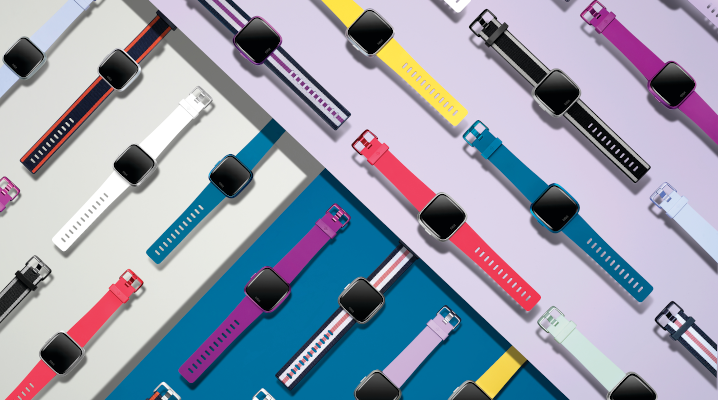 APPS
APPS
 APPS
APPS
 APPS
APPS
Four days after rumors emerged that Google LLC was in talks to acquire Fitbit Inc., the deal is now official, potentially setting up a battle royal for the post-smartphone era of connected devices.
The search giant said today that it has agreed to pay $7.35 per Fitbit share in an all-cash transaction worth $2.1 billion. The offer represents a 70% premium to the smartwatch maker’s closing price on Friday, the last day of trading before the buyout discussions became public knowledge.
Fitbit sells a series of smartwatches that enable users to track their workouts, sleep quality and health. The company’s newest product, the Versa 2, packs additional features including an integration with the Alexa voice assistant. Fitbit has shipped more than 100 million devices to date and claims that its various smartwatch models are used by 28 million people worldwide.
Even so, the $7.35 per share Google is paying represents a small fraction of the $51.90 all-time high the company reached in 2015. Fitbit’s stock price and market share have taken a hit in recent years because of intense competition from Apple Inc., which leads the smartwatch market by a wide margin with its Apple Watch.
The Google takeover could mean more competition for the iPhone maker. Investment bank Cowen & Co. wrote in a research note to clients that “the Fitbit platform may be expanded with Google technology under new ownership and that Fitbit technology may be integrated into existing Wear OS devices.” Wear OS is the slimmed-down version of Android that the search giant offers for wearables.
Another technology that could find its way to Fitbit devices is Google Assistant. Since the smartwatch maker’s Versa 2 model offers Alexa integration, it’s not hard to imagine that the Alphabet Inc. subsidiary would want to make its own service available to users as well. Doing so would expand the reach of Google Assistant to millions of new devices.
Fitbit’s strong brand awareness holds value too. Cowen noted that the deal will benefit Google by “providing the company with a hardware brand that holds significant cachet in the fitness tracker space, something that has arguably been lacking in the Wear OS community.”
Google’s acquisition of Nest in 2014 may provide additional clues about the search giant’s plans. After acquiring Nest, it significantly expanded its lineup of smart home products by adding internet-connected security cameras, an alarm, a smart doorbell and more. Google might capitalize on Fitbit’s brand in a similar fashion and extend its product portfolio beyond smartwatches into other wearables categories.
The search giant could even integrate the two product families with one another. The Apple Watch enables users to control certain third-party smart locks with an app, a feature Google can now replicate with Fitbit watches and the Nest doorbell.
Google expects to close the acquisition in 2020.
“By buying Fitbit, Google is acquiring customers and data,” commented Patrick Moorhead, president and principal analyst at Moor Insights & Strategy. “I think it’s a good move given Google has failed so far in wearables and Apple is so far ahead with Watch.”
But he added, “I think customers need to be asking the question about privacy and what Google is going to do with all of their personal health information.”
Rick Osterloh, the head of Google’s hardware business, pledged in a blog post that consumer data collected by Fitbit devices won’t be used for ad serving. And Fitbit co-founder and President James Park sought to set those concerns to rest in an email to customers. “You will always be in control of your data, and we will remain transparent about the data we collect and why,” he wrote. “We never sell your personal information, and Fitbit health and wellness data will not be used for Google ads.”
Holger Mueller, an analyst with Constellation Research Inc., said there’s another potential benefit for Google: the sizable Fitbit computing and data workload for Google’s cloud computing operation.
But he also said Google has some work ahead of it. “Fitbit was always great hardware – think battery life – but bad software,” he said. “Let’s hope Google will fix that for the Fitbit user community.”
If Google can make something of the acquisition, it may well launch the next big technology battleground for the tech giants.
“The next decade will center on the emerging ecosystem of connected wearable devices, in an effort to establish dominance in a post-smartphone world,” Futuresource Consulting Ltd. analyst Stephen Mears noted in a blog post today. “The acquisition of Fitbit by Google means far more than a mere change in the wearables landscape. It is one component of a much larger competitive challenge in the technology world and sets the scene for the ecosystem decade.”
Indeed, Google reportedly wasn’t the only player interested in buying Fitbit to challenge Apple’s wearables dominance. According to two anonymous insiders cited by the The Information, Facebook Inc. held acquisition talks with the company as well.
With reporting from Robert Hof
Support our mission to keep content open and free by engaging with theCUBE community. Join theCUBE’s Alumni Trust Network, where technology leaders connect, share intelligence and create opportunities.
Founded by tech visionaries John Furrier and Dave Vellante, SiliconANGLE Media has built a dynamic ecosystem of industry-leading digital media brands that reach 15+ million elite tech professionals. Our new proprietary theCUBE AI Video Cloud is breaking ground in audience interaction, leveraging theCUBEai.com neural network to help technology companies make data-driven decisions and stay at the forefront of industry conversations.